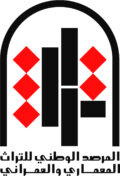About Us
The National Observatory for Architectural & Urban Heritage

Heritage cities are considered a real treasure that must be preserved and employed to diversify sources of income and increase national income.
Eng. Mohamed Ali Surmani, MSc. ___ CEO of the National Observatory for Architectural and Urban Heritage
The number of sites registered in the Heritage Registers
Terms of reference
The Observatory is concerned with all the belongings of the ancient and modern architectural and urban heritage and its development. It defines heritage and works by the laws and charters ratified by the Libyan State and the policies adopted to preserve buildings, sites, and heritage cities, including those to which the concept of modern heritage applies, and the following:
- Monitoring human and natural hazards and threats that destroy architectural and urban heritage sites.
- Establishing the National Tangible and Intangible Heritage Register and contributing in several ways to include rare and unique architectural and urban heritage landmarks in the national, regional, and international cultural heritage list.
- Integrate architectural and urban heritage preservation into Libyan development policies.
- Introducing architectural and urban heritage in the educational system at all
- Adopting the general policies for managing architectural and urban heritage, the programs and plans supporting them, and all standards for preserving tangible and intangible heritage.
- Contribute to spreading awareness of the value of architectural and urban heritage through publicity through various media and available means.
- Introducing Libya’s architectural and urban heritage areas and promoting them in local, regional, and international forums.
- Supporting media, tourism, cultural, educational, and documentary programs, and all programs and projects which would shed light on all components of architectural and urban heritage and introduce its concept, as well as support programs that highlight the active role of preserving the sites and landmarks of architectural and urban heritage.
- Participation of technical bodies and institutions working to protect architectural and urban heritage sites due to their importance as a national heritage that must be preserved, and coordination between them and local, regional, and international organizations.
- Exercising the powers of the National Planning Council contained in Article III of Law No. 13 of 2000 on Planning related to architectural and urban heritage bodies.
- Proposing the establishment of training and scientific research centers at the national, regional, and international levels to protect architectural and urban heritage, encourage scientific research in this field, and contribute to the rehabilitation and training of technical cadres in preserving architectural and urban heritage.
- Integrating heritage into urban, economic, social, and cultural development.
- Contribute to the public and private sectors in development programs.
- Employing heritage in a way that suits its components by the contemporary requirements of society.
- Contribute to financing programs for preserving architectural and urban heritage sites registered in local, regional, and international heritage lists.
- Contribute to financing the construction of museums, warehouses, and other buildings for protecting architectural and urban heritage.
- Participation in traditional crafts and industries programs that contribute to preserving heritage buildings and cities and the commercial activities of historical markets and old markets.
- Supporting and funding civil society organizations working to protect architectural and urban heritage.
- Contribute to setting up international and regional organizations and entities that preserve architectural and urban heritage or similar activity.
- Participate in drafting international treaties and conventions to which Libya is a party and related to the competencies of the Observatory.
- Expressing an opinion on legislation related to preserving and protecting architectural and urban heritage and updating it.
- Any other purposes are in line with his goals.
Our Philosophy
Dealing with urban heritage is fragmented between the new approaches that look to demolish it and construct buildings that mimic it and make it lose its originality and the approaches that are excessive in preserving it. Hence, we must adhere to a balanced approach that achieves the following:
- Preserving the urban heritage and its Islamic importance.
- Dealing with an integrated approach to integrate it into urban, economic, social, and cultural development.
- Employing it in a way that suits its components and allows us to receive help from it by running it under contemporary requirements.
